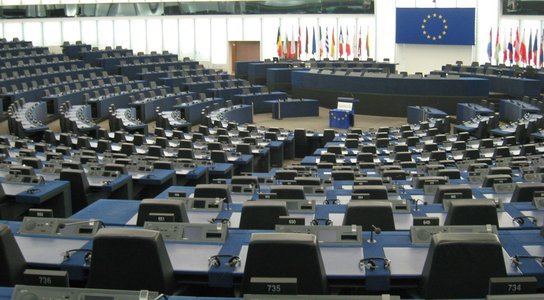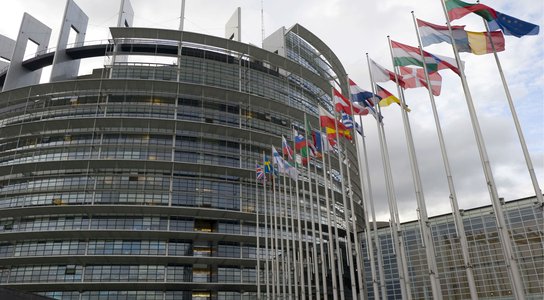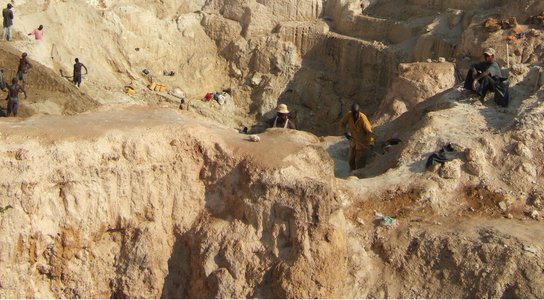Europe looks set to prioritise big business over people suffering under the deadly conflict minerals trade, Amnesty International and Global Witness warn on the eve of a landmark vote designed to tackle the European trade.
Members of Parliament (MEPs) will vote on inaugural legislation in Strasbourg on Wednesday, which for the first time could legally require European companies to ensure the minerals they buy are not contributing to conflict or human rights abuses in other countries.
But intense lobbying by big business risks watering down the law into a proposal that would do little to tackle a trade that funds conflict in parts of Africa and elsewhere. If the proposal is not amended, only about 20 raw mineral importers would be legally required to source their materials responsibly. European businesses that sell and make products containing those minerals would only be covered by a voluntary system.
“This is a historic opportunity to tackle the conflict minerals trade. But the proposal on the table effectively ignores some of the most important players in the industry,” said Lucy Graham of Amnesty International.
“If the European Parliament is serious about addressing the trade in conflict minerals, these big-brand names must be legally required to check their supply chains. Unfortunately it seems that the European Union has given more weight to the voice of powerful business than to the voices of the people who live with the fall-out from this trade on a daily basis.”
The trade in conflict minerals, which can end up in everyday products such as mobile phones and laptops, has funded violence and brutal armed groups across the world. In the Central African Republic, Colombia, and the Democratic Republic of Congo, the minerals trade has been partly responsible for fuelling deadly conflicts that have displaced 9.4 million people.
Businesses, largely from the automotive, aeronautic and electronics sector, are lobbying behind the scenes to make sure they will not have to investigate or report on the minerals in their products.
“No European business should be allowed to profit from a trade that lines the pockets of violent and abusive armed groups,” said Michael Gibb of campaigns group Global Witness.
“It is vital that MEPs stand up to big business tomorrow. They must vote for a binding law that encourages companies to continue sourcing from conflict-affected or high-risk regions, but in a way that is responsible. Trade should benefit the local population, not armed groups.”
Amnesty International and Global Witness are calling on MEPs to strengthen the proposal when they vote on Wednesday by requiring companies to check if their mineral purchases have funded violence and human rights abuses.
European consumers have sent more than 200,000 messages to MEPs calling on them to strengthen the law. Over 150 civil society organisations as well as Dr. Denis Mukwege, the EU’s 2014 Sakharov Prize winner for human rights, have echoed these calls, as have politicians, investors, business voices and religious leaders.
/ ENDS
Contacts
-
Sarah Morrison
Notes to editor:
1. In March 2014, the European Commission put forward a draft regulation to address the trade in conflict minerals. It covers four minerals: tin, tantalum, tungsten and gold (‘3TG’). It is entirely voluntary, giving 300-400 importers of those minerals the option of sourcing responsibly and reporting publicly on their efforts to do so, through a process known as “supply chain due diligence”. The proposal leaves out the 3TG that enter the EU in every day products, such as mobile phones, laptops and cars.
2. The European Parliament’s International Trade Committee (INTA) was designated to lead the European Parliament’s response to the Commission’s proposal. In April 2015, the INTA Committee proposed some mandatory requirements. However, these also apply to just a small fraction of the industry—about 20 European companies that smelt or refine 3TG, according to numbers from the European Commission. The vast majority of companies involved in the trade— including some importing these minerals directly from conflict-affected and high-risk areas—would have no obligation to source responsibly.
3. The Plenary of the European Parliament is due to vote on the law on 20 May 2015. The result will define the Parliament’s mandate for negotiations with the European Commission and Council of the European Union on the final text of the regulation.
4. The US and 12 African countries have endorsed measures requiring companies to source minerals responsibly. China has introduced guidelines promoting a clean trade.
You might also like
-
Briefing More than 150 civil rights groups call on MEPs to strengthen the EU Conflict Minerals Regulation
Days before a landmark vote on European conflict minerals regulation, rights groups call on politicians to vote for binding legislation requiring European companies to ensure their mineral purchases do not fund conflict or human rights abuses overseas.
-
Briefing Conflict Minerals in Europe
After years of campaigning by Global Witness and civil society partners the EU has reached a political understanding on a new law intended to break the links between the minerals trade, conflict and human rights abuses.
-
Briefing Conflict Minerals in Eastern Congo
Resource-fuelled conflict has contributed to instability in Congo’s east for over two decades.